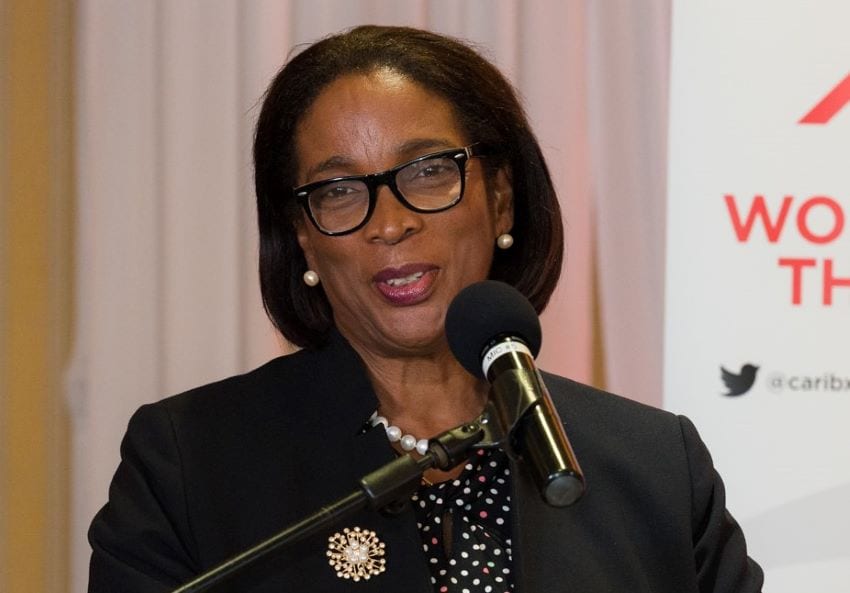Minister in the Ministry of Foreign Trade, Sandra Husbands. (FP)
The impact of the COVID-19 pandemic, the blacklisting from the European Union and the recent implementation of a 15 per cent corporate tax rate have signalled the need for a more diversified, resilient and robust services sector, if Caribbean economies are to build back and build back better.
Minister in the Ministry of Foreign Trade, Sandra Husbands, made this assertion during her address at the first virtual Services Go Global (SGG) certification ceremony, last evening.
“The services sector has become one of the most important economic activity drivers in our regional economy. The services sector in the Caribbean is crucial for providing strong economic growth and creating a source of jobs for Caribbean nationals. The statistics illustrate that the services sector contributes a range of 43 to 86 per cent of the gross domestic product (GDP) to the Caribbean economies. Our countries are therefore fully dependent on this service activity.
“As a result, our regional service strategy group comes to mind. I see this strategy asserting Barbados and the wider Caribbean region to diversify the services sector in the following areas: health and wellness services; professional services; renewable energy; ICT; education; culture and creative industries services and financial services,” Minister Husbands stated.
She stressed that regional governments and the private sector must work together to diversify the services sector, and before the implementation of the above services, the strategy group would examine the strengths, weaknesses, opportunities and threats to these services sectors.
Minister Husbands congratulated all the agencies involved in providing the SGG training programme, including the Trinidad and Tobago Coalition of Services Industries (TTCSI) and Caribbean Export Development Agency (CEDA). This, she declared, was CSME in action.

President of TTCSI, Mark Edghill, speaking on the SGG programme, explained: “It was developed to optimise the CARIFORUM region’s export of services by building the capacity of service providers to capitalise on opportunities under the Economic Partnership Agreement, CARICOM Single Market and other existing third party trade agreements; as well as to establish a cadre of certified trainers for the SGG platform geared to assist small and mid-size enterprises (SMEs) in the services sector.”
Mr. Edghill highlighted that as a result of the SGG training “we can now attest that the network of several Caribbean services coalition is truly a functioning network at this point and time”.
Speaking on the significance of the training, CEDA’s Executive Director, Deodat Maharaj, stated: “Activities like this takes on even more significance this year, since it provides priority of the highest order, as we at the Caribbean Export Development Agency seek to forge relationships that can help advance private sector development across our region, as we seek to create jobs and opportunity for our people and fast track post COVID-19 recovery and build a resilient Caribbean.”
He expressed that CEDA waspleased to partner with the Caribbean network of services coalitions to host the inaugural SGG certification ceremony, which was made possible through the agency’s implementation of the 11th European Development Fund, a regional private sector development programme.
During the ceremony, CEO of TTCSI, Vashti Guyadeen, provided a sneak peek at the region’s first electronic services catalogue, which highlights certified service providers in nine sectors across the Caribbean region.
A total of 84 service providers and firms participated in the four-day export readiness training programme.





